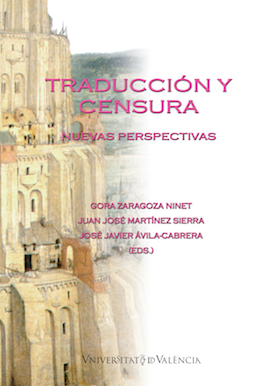La traducción como arma propagandística: censura de Orwell, Abellio y Koestler en la España franquista
DOI:
https://doi.org/10.7203/qf-elit.v20i0.7532 Resum
Resum
Aquest article tracta de desentranyar el paper que va exercir la traducció al servei del franquisme. Per a això, es realitza un estudi de tres obres caracteritzades per un fort component polític i publicades durant la dictadura: La escritura invisible, de Koestler; 1984, de Orwell; i Los ojos de Ezequiel estan abiertos, d'Abellio. Emprant una metodologia mixta que combina l'anàlisi quantitativa i qualitatiu de les dades, es pretén detectar exemples de manipulació i establir patrons de comportament censor. Els resultats mostren una clara tendència a la “metacensura”, una estratègia que no busca suprimir contingut sinó crear discursos favorables als interessos franquistes, utilitzant la traducció com a arma propagandística.
Paraules clau: traducció; franquisme; censura; estratègies; propaganda.
 Descàrregues
Descàrregues
Descàrregues
Publicades
Com citar
-
Resum1573
-
PDF (Español)1928
Número
Secció
Llicència
 Este obra está bajo una licencia de Creative Commons Reconocimiento-NoComercial-SinObraDerivada 4.0 Internacional.
Este obra está bajo una licencia de Creative Commons Reconocimiento-NoComercial-SinObraDerivada 4.0 Internacional.
Tots els documents inclosos a OJS són d'accés lliure i propietat dels seus autors i/o institucions editores, i per tant, qualsevol acte de reproducció, comercialització, comunicació pública o transformació total o parcial necessita el consentiment exprés i escrit d'aquests.
________
Authors who publish with this journal agree to the following terms:
- Authors retain copyright and grant the journal right of first publication with the work simultaneously licensed under a Creative Commons Attribution License that allows others to share the work with an acknowledgement of the work's authorship and initial publication in this journal.
- Authors are able to enter into separate, additional contractual arrangements for the non-exclusive distribution of the journal's published version of the work (e.g., post it to an institutional repository or publish it in a book), with an acknowledgement of its initial publication in this journal.
- Authors are permitted and encouraged to post their work online (e.g., in institutional repositories or on their website) prior to and during the submission process, as it can lead to productive exchanges, as well as earlier and greater citation of published work (See The Effect of Open Access).



